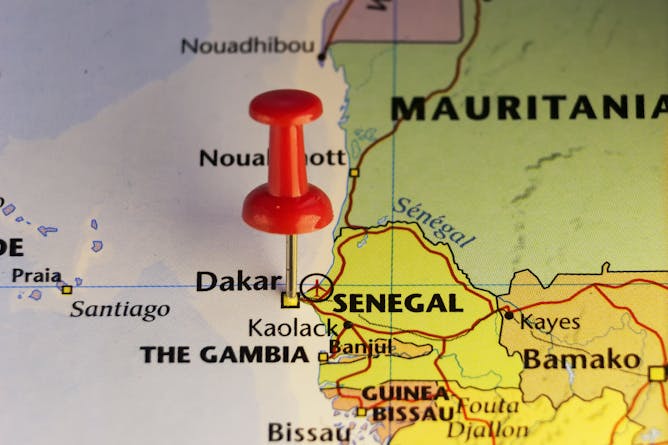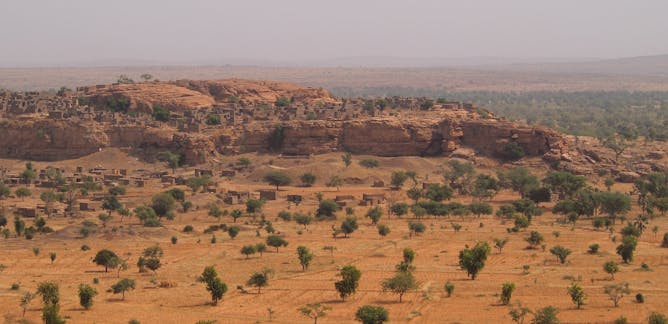|
|
|
|
One of the hottest health topics in many African countries is the rise in obesity, a major risk factor in people developing diseases like type 2 diabetes, hypertension, heart disease and many common cancers. One of the areas of focus in managing this has been to bring down sugar consumption. Three years ago South Africa took the lead on the continent in tackling the problem when it introduced a tax on sugary drinks. Karen Hofman summarises the findings of a new study that shows large reductions in purchases of sweet drinks in terms of both volume and sugar quantities.
The textbook view is that around 40,000 years ago, the Middle Stone Age had largely ceased to exist in Africa, marking the end of a period that set the baseline for all the subsequent innovations and adaptations that define us today.
But is this in fact what happened?
Unfortunately, large parts of Africa remain near-complete blanks on the map when it comes to this deep prehistory, making it difficult to have a definitive answer. Over the last century, a huge sweep of new information has been unearthed and analysed, particularly in eastern and southern Africa. Now it’s the turn of West Africa, one of the least understood regions when it comes to human evolution. Eleanor Scerri unpacks the findings of archaeologists in Senegal. Their recent research validates earlier claims of a rich Middle Stone Age past – and it’s the first time this material culture has been dated to such a recent period in Africa. It’s a
reminder of the dangers of ignoring gaps on the evolutionary map.
|
Ina Skosana
Health + Medicine Editor (Africa edition)
|

|
|

Photo by Peter Kovalev\TASS via Getty Images
Karen Hofman, University of the Witwatersrand
The results are in: South Africa’s ground-breaking health promotion levy, introduced in 2018, is working.
|

shutterstock.
Eleanor Scerri, Max Planck Institute for the Science of Human History
New evidence affirms that significant, long-standing inter-group cultural differences shaped the later stages of human evolution in Africa.
|
Education
|

Joshua Amo-Adjei, University of Cape Coast
The inclusion of new topics in Ghana's comprehensive sex education curriculum has split opinions among parents.
| |

Emmanuel Mayeza, University of the Free State; Deevia Bhana, University of KwaZulu-Natal
Pupils who are victimised at school tend to perform poorly academically, are regularly absent from school, suffer psychological trauma and may eventually drop out of school.
|
|
|
Business + Economy
|

David Richard Walwyn, University of Pretoria; Padmashree Gehl Sampath, Harvard University
African governments, firms and donor agencies should align their efforts to support the local manufacture of vaccines and other health equipment in African countries.
| |

Richard Jimoh, Federal University of Technology, Minna
Women need to know what opportunities exist for them in the construction industry.
|
|
|
From our international editions
|

Clare Mehta, Emmanuel College
A developmental psychologist explains how a period of life that's often hectic and stressful can also end up being quite rewarding.
| |

Jonathan Spangler, Manchester Metropolitan University
The marriage of the future British queen and her consort was part of an ancient tapestry of royal intermarriage in Europe.
|
|
|
En Français
|

Martin Brandt, University of Copenhagen; Kjeld Rasmussen, University of Copenhagen
Des technologies de pointe permettent de construire une base de données ouverte de milliards d’arbres individuels, pour mieux comprendre la végétation en zone aride, loin des idées reçues.
| |

Susan Michie, UCL; Chris Bullen, University of Auckland; Jeffrey V Lazarus, Barcelona Institute for Global Health (ISGlobal); John N. Lavis, McMaster University; John Thwaites, Monash University; Liam Smith, Monash University; Salim Abdool Karim, Centre for the AIDS Program of Research in South Africa (CAPRISA); Yanis Ben Amor, Columbia University
Les variants ont changé la donne. Nous devons agir en conséquence pour éviter de nouvelles vagues d’infections, de nouvelles fermetures, restrictions, hospitalisations et décès évitables.
|
|
|
| |
Featured events
|

|
10 Marais Street, Stellenbosch , Stellenbosch, Western Cape, 7600, South Africa — Stellenbosch University
|

|
27 St Andrews Road, Parktown, Johanesburg, Gauteng, 2193, South Africa — University of the Witwatersrand
|

|
Robert Sobukwe Road, University of the Western Cape, Bellville, Cape Town, Western Cape, 7535, South Africa — University of the Western Cape
|
|
|
|
| |
| |
| |
Would you like to republish any of these articles?
|
|
It’s free to republish, here are the guidelines.
Contact us on africa-republish@theconversation.com in case you need assistance.
|
| |
| |
| |
| |
|
|
|
|
|
|
|